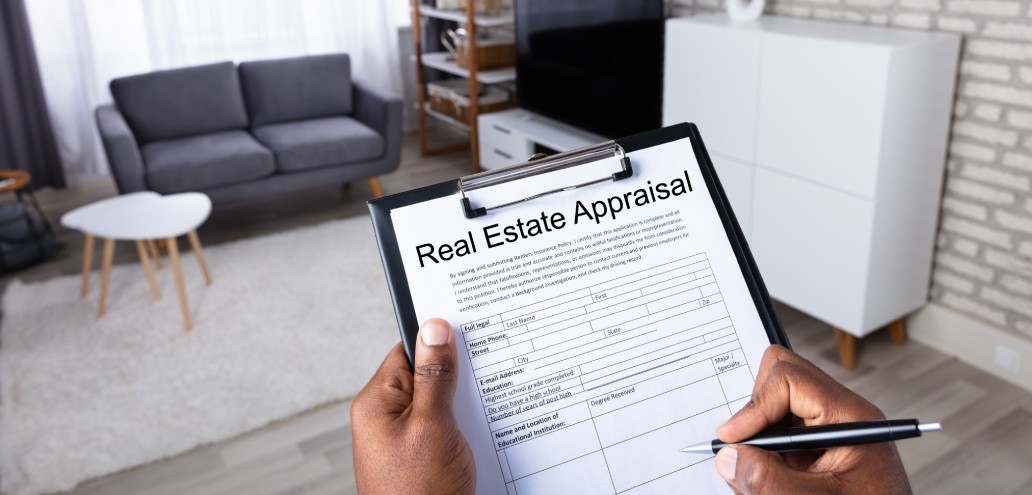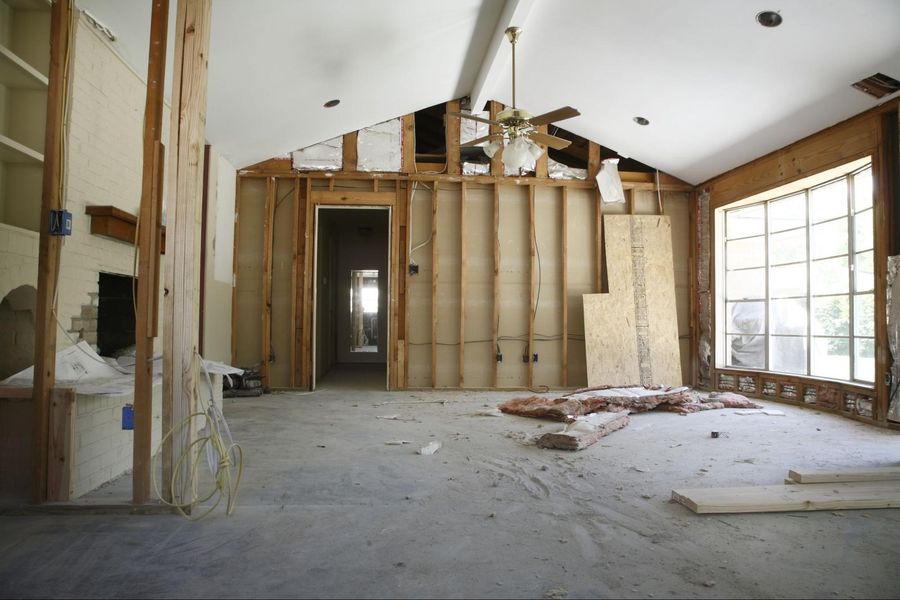Last Updated on February 23, 2024 by CREW Editorial
Approaching a home appraisal with the right preparation can make a significant difference in your real estate endeavors.
Though we’ve recently explored the steps you should take to prepare your property for a home inspection, what are you supposed to do on the day of the appraisal? Whether you’re in the process of selling your home or refinancing, understanding how to navigate the appraisal process is crucial. From scheduling flexibility to preparing necessary documents, there are essential strategies you can use to ensure your home is evaluated accurately and efficiently, reflecting its true market value.
At the Time of the Appraisal
Accommodating the Appraiser’s Schedule
To ensure a smooth appraisal process, it’s vital to be flexible when scheduling the appointment. Appraisals typically require a 20-40 minute inspection, depending on your property’s size and features. Be ready to accommodate the appraiser at a convenient time, ideally within 24-48 hours of their request. This promptness can greatly assist in expediting your mortgage approval process.
Remember, delays in scheduling can postpone your entire property transaction, impacting agreements and potentially financing arrangements. Hence, prioritising the appraisal appointment in your calendar is a wise move.
Providing Access to All Areas of the Property

The appraiser needs to inspect every part of your property thoroughly. This includes interior spaces such as attics and crawl spaces, and exterior features like garages or outbuildings. Your job is to ensure no area is off-limits during their visit. Unhindered access allows the appraiser to gather all pertinent data concerning your property’s layout, conditions, and improvements, critical to determining an accurate market value.
- Ensure that all locks are functional.
- Clear any obstructions that might restrict entry to different parts of the property.
- If you have pets, arrange for them to be elsewhere during the inspection.
Having Necessary Documents and Information Ready
Having all relevant documentation on hand for the appraiser is essential. The information you provide can influence the assessment of your property’s value. The documents you’ll need typically include:
- Recent comparable sales data: Supports your property’s market value.
- Documentation of improvements: Details upgrades made to the property.
- Property documents and paperwork: Ensures legal aspects are covered.
- Information on the property’s sale: Includes listings and recent sale offers.
Additionally, the appraiser may require details about your home’s marketing activity, dates of major renovations, as well as policies describing easements or encroachments. Keeping all paperwork organized for quick reference can simplify the appraiser’s job and enhance the accuracy of the report.
- Title policies
- Plot plans or surveys
- Current listing agreements
- Homeowners associations details
By meticulously preparing for the appraisal, providing clear access, and organizing necessary documentation, you’re setting the stage for a successful valuation of your property. Remember, every detail counts in painting a complete and accurate picture of your home’s worth.
Understanding the Evaluation Criteria
Determining How the Property’s Value is Assessed
When preparing for a property appraisal, you’ll want to understand how an appraiser assesses the value of your property. Appraisers rely on systematic approaches to estimate a property’s market value. The three primary valuation methods are critical to this assessment:
- Cost Approach: This considers what it would cost to replace your property with a similar one, adding the value of the land, and subtracting any depreciation.
- Income Approach: Applicable for investment properties, this method calculates potential income through rent and other revenue streams, evaluating the present value of expected future benefits.
- Sales Comparison Approach: By far the most common, this involves comparing your property to similar ones that were recently sold in the area.
You, as the homeowner, should be aware that appraisers collect vast amounts of data from various sources, including local land records, recent sales transactions, and property features, to conduct a fair assessment.
Factors That Can Influence the Appraised Value
Numerous elements can affect your property’s appraised value. Appraisers look at objective metrics, but they also consider subjective aspects that may influence buyer interest. Key factors include:
- Location: Proximity to amenities, school districts, local markets, and even street noise levels.
- Size and Layout: Square footage and the practicality of the property’s design.
- Condition: Current state of repair, age, and any updates or renovations.
- Market Trends: Supply and demand for homes in your area and the overall economic climate.
- Curb Appeal and Landscaping: A well-maintained appearance can significantly impact first impressions.
- Utilities and Functional Systems: The quality and state of electrical, plumbing, heating, and cooling systems.
- Interior and Exterior Features: This includes built-in appliances, flooring materials, exterior finishes, and the overall construction quality.
Appraisers also analyze current market conditions and extrapolate data from recent sales of comparable properties to support their valuation. For instance, if homes with upgraded kitchens are selling faster in your area, this could enhance your home’s appraised value if a similar improvement has been made. Conversely, if the local market is sluggish, even exceptional properties may appraise for less than anticipated.

Conclusion
Having your home appraised can be a stressful experience, but with the right prep, the actual process can go quite smoothly!
Gathering relevant documentation, ensuring easy access to all areas of your home, and being aware of the current market trends are all crucial steps. By carefully highlighting your property’s strengths and paying attention to details that could impact its value, you position your home to be appraised favorably. Remember, the effort and thought put into preparing for an appraisal can significantly influence the final valuation. This preparation not only showcases your property in its best light but also equips you with the knowledge and confidence to navigate the appraisal process successfully, ultimately leading to a more favorable outcome in your real estate endeavors.









